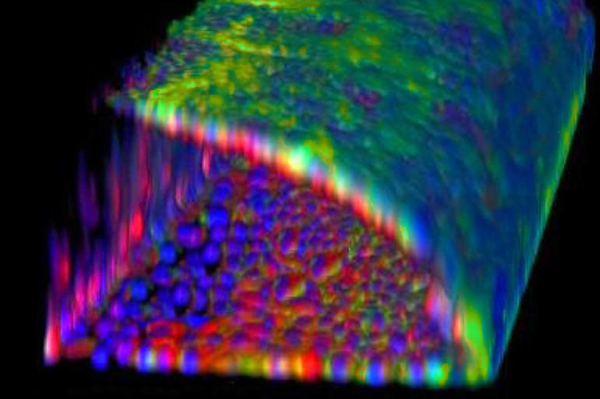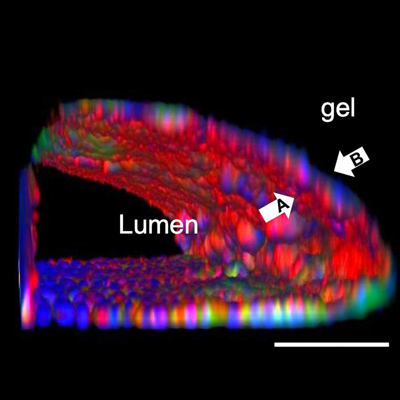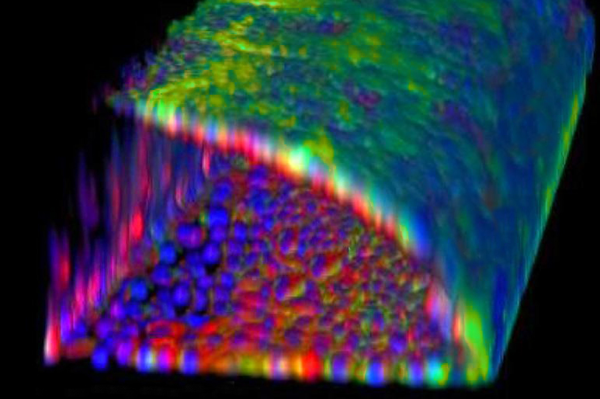Adult Stem Cell-Derived Kidney-on-a-Chip in Nature Biotechnology

Leiden, March 5, 2019 – Scientists from the Hubrecht Institute, the University of Utrecht, and MIMETAS have successfully grown kidney tubules derived from human kidney adult stem cells in microfluidic chips. This research has been published in Nature Biotechnology by the world-leading research group of Professor Hans Clevers.
Henriette Lanz, Ph.D., Director of Biology at MIMETAS and co-author on the paper explains: “Scientists at the Hubrecht Institute managed to reprogram stem cells found in the human kidney cortex to cells that are similar to tubular cells of the kidney. From these cells, my team has grown three-dimensional perfused kidney tubules. We have discovered that these tubules are fully polarized, meaning that they distinguish inside from outside, just like in a real kidney. Moreover, the biologically important barrier function of the kidney tubes is intact. We show that transporter activity is functional, which is a hallmark of kidney tissue, responsible for pumping of nutrients and toxicants across the kidney barrier. We can grow 40 of such tubules in one single OrganoPlate®. The kidney tubes can be used to create disease models that allow the development of novel therapies. This novel technology offers a powerful human alternative to animal testing for toxic side effects of new medicines.”
A mini kidney from the lab doesn't look like a normal kidney, but the simple cell structures share many of the characteristics of real kidneys. Researchers can use them to study certain kidney diseases. “We can use these mini kidneys to model various disorders: hereditary kidney diseases, infections, and cancer. This allows us to study in detail what exactly is going wrong”, says Hans Clevers, Professor of Molecular Genetics at Utrecht University and the University Medical Center Utrecht, and group leader at the Hubrecht Institute. “This helps us to understand the workings of healthy kidneys better, and hopefully, in the future, we will be able to develop treatments for kidney disorders.”


Kidney-on-a-Chip in Nature Biotech. The OrganoPlate® 3-lane comprises 40 microfluidic chips embedded in a standard microtiter plate format. 3D reconstructions of kidney tubules grown against a collagen gel. The tubules show cilia at the luminal (pre-urine, left) side and ion transporters at the blood side (right).
